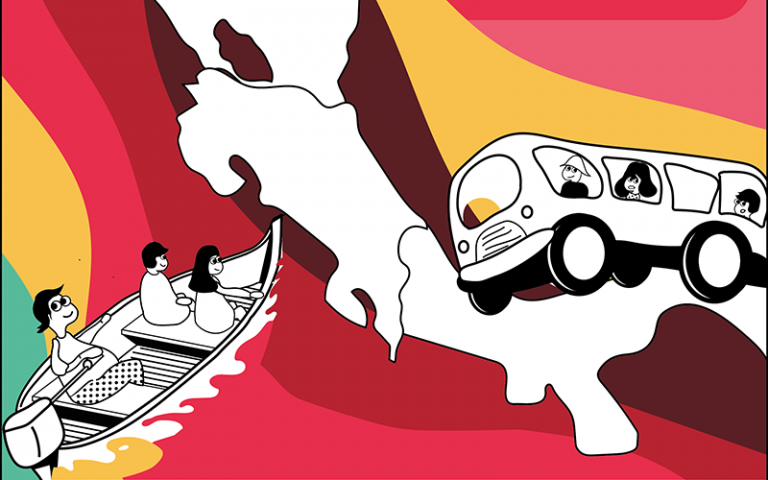DPU part of team staging Central American datathon for informal transportation
19 February 2021
The DPU team, led by Dr Daniel Oviedo, will join GPIT and CPSU as an academic partner and will facilitate a data collection platform and know-how on informal transportation.

The Global Partnership for Informal Transportation (GPIT) and the Centro Para la Sostenibilidad Urbana (CPSU) will stage the Central American Datathon during the month of March. The Datathon will gather information about informal transportation systems across Central America.
The project, funded by the British Embassy in San Jose, Costa Rica, constitutes a first step towards the GPIT’s effort to develop the Global Encyclopedia of Informal Transportation Vehicles. The effort will gather and surface information about the ubiquitous informal transportation systems that serve the majority of cities and towns in the Global South.
The Central American Datathon will crowdsource information on vehicles and routes across the region. CPSU will recruit volunteers and researchers to collect information on local names, vehicles form factors, routes, geography, the availability of ride-hailing apps, and other important dimensions of informal transportation in Central America. The information will be useful to understanding the particular characteristics of informal transport in different countries, and the value it generates to operators, users and local economies. It will also provide insights that will facilitate calculations regarding the carbon footprint of the sector and develop data-based policies for inclusive urban infrastructure (urban design), transport planning and post-COVID economic regeneration.
Informal transportation dominates the public transportation systems of the cities and towns of Central America and across the Global South. Despite this near ubiquity, informal transportation is often seen as a local problem. The sector suffers from haphazard, discriminatory policies and regulations and is often despised in urban and transportation planning. Even transportation experts tend to favor strategies oriented toward eliminating and replacing these services. Understanding informal transportation as an asset and working towards transformation will benefit millions of people, many of them from the most vulnerable sectors.
GPIT and CPSU want to change this narrative and bring long overdue visibility to the important role informal transportation plays. GPIT and CPSU believe informal urban transit systems are engines for connecting people with opportunity and creating more sustainable and inclusive cities.
 Close
Close

